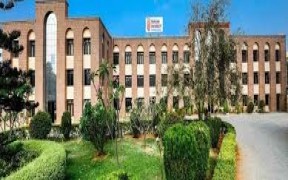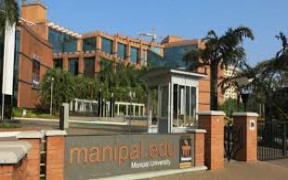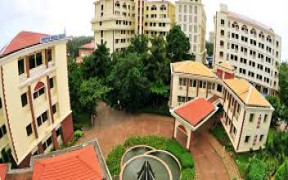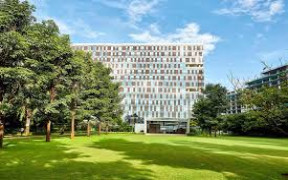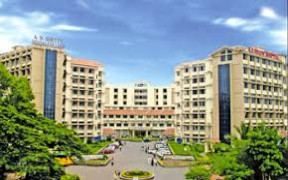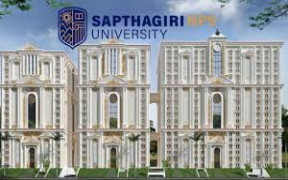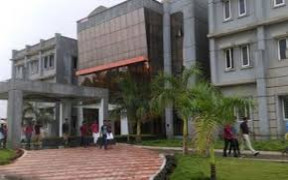Why Choose MSc Medical Imaging Technology in Bangalore
Bangalore has become a premier centre for advanced diagnostics, featuring leading hospitals, radiology centres, and research institutes. An MSc in Medical Imaging Technology here offers immersion in cutting‑edge diagnostic modalities like MRI, CT, ultrasound, nuclear imaging, and digital radiography. This blend of high‑technology labs, clinical partnerships, and expert faculty prepares graduates to become highly skilled professionals in diagnostic imaging.
What Makes the Best MSc Medical Imaging Technology Colleges Stand Out
Top-tier institutions in this field consistently offer:
-
Comprehensive & Current Curriculum – Advanced modules covering MRI physics, CT scanning, ultrasound, radiographic techniques, radionuclide imaging, PACS, digital image processing, and image optimization.
-
Hands-On Lab Training – Extensive practice in simulated and real-world diagnostic departments, including workflows with MRI, CT, ultrasound, and X‑ray modalities.
-
State-of-the-Art Infrastructure – Access to high-field MRI, multi-slice CT, Doppler ultrasound, digital radiography units, PACS servers, and quality assurance tools.
-
Clinical Internships & Rotations – Structured clinical exposure via collaborations with top hospitals, diagnostics labs, and research centres.
-
Experienced Faculty & Clinical Mentors – Radiologists, medical physicists, MRI/CT technologists, and imaging specialists guide students through image acquisition, interpretation standards, and safety protocols.
-
Professional & Career Guidance – Dedicated placement teams assist graduates with roles in hospitals, boutique imaging centres, software firms, and remote diagnostics platforms.
Eligibility & Admission Process
Typical entry requirements for MSc Medical Imaging Technology Colleges in Bangalore include:
-
A Bachelor’s degree in Radiography, Medical Imaging, Biomedical Engineering, or related allied health/science field, with at least 50% aggregate.
-
Admission may be based on merit, university-level entrance tests, and/or interviews assessing technical aptitude and understanding of imaging principles.
-
Application windows generally fall between May and July, with courses commencing in July–August.
Curriculum Structure & Outcomes
This two-year program blends theoretical foundations, technical labs, clinical practice, and research skills:
Year 1 – Foundations & Equipment Mastery
-
Anatomy, physiology, and pathology for diagnostic imaging
-
Radiation physics and safety regulations
-
MRI principles, sequences, and interpretation basics
-
CT scanning, slice parameters, contrast imaging
-
Ultrasound physics, transducer handling, abdominal and Doppler imaging
-
Digital radiography, positioning, and dose control
Year 2 – Advanced Practice & Clinical Rotations
-
Nuclear imaging & PET/SPECT fundamentals
-
PACS and digital workflow management
-
Image post-processing and quality optimization
-
Clinical rotations in MRI, CT, ultrasound, X‑ray, and nuclear imaging
-
Research project/thesis with project management, data analytics, and academic writing components
Graduates develop expertise in high-end imaging modalities, optimize imaging protocols, ensure patient and radiation safety, and handle clinical workflows effectively.
Career Opportunities & Outlook
An MSc in Medical Imaging Technology opens doors to diverse roles:
-
MRI/CT/Nuclear Imaging Technologist
-
Sonographer or Diagnostic Ultrasound Specialist
-
PACS Administrator or Imaging Data Manager
-
Radiology Workflow Coordinator
-
Radiation Safety & Quality Assurance Officer
-
Clinical Application Specialist for imaging systems
-
Pre‑clinical or clinical research imaging associate
-
Sales & Product Trainer for diagnostic imaging vendors
-
Educator or faculty in diagnostic imaging programs
Salary Outlook:
Entry-level salaries range from ₹5 LPA to ₹8 LPA. With clinical certifications and 3–5 years of experience, mid‑career professionals can earn ₹10–15 LPA. Senior technologists, imaging administrators, and educators may command ₹15–20 LPA or more, especially within leading private hospitals and research institutes.
How to Choose the Best College for MSc Medical Imaging Technology
When selecting a program, consider these factors:
-
Accreditation & Recognition – Ensure affiliation with a reputable university and approval from medical imaging bodies.
-
Clinical Exposure & Case Volume – High-volume rotations ensure hands-on experience across diverse diagnostic cases.
-
Lab & Imaging Infrastructure – Verify access to MRI, CT, ultrasound, X-ray, nuclear imaging, PACS, and quality assurance labs.
-
Faculty & Mentor Credentials – Seek programs where faculty include working radiologists, imaging physicists, and technologists.
-
Placement Records & Industry Ties – Strong ties with hospitals and diagnostic centres drive job placements and career growth.
-
Research & Project Options – Focus on practical research or thesis work in diagnostic imaging or healthcare informatics.
-
Student Feedback – Connect with current students or alumni to gauge lab access, faculty support, and clinical preparedness.
Fee Structure & Financial Aid
Annual tuition ranges from ₹1 Lakh to ₹3 Lakhs, depending on imaging access and lab infrastructure. Many colleges offer:
-
Merit-based scholarships or fee concessions for imaging students
-
Lab assistantships or project-based stipends
-
Interest-free installment payment options
-
Education loan support through institutional partnerships
Tips to Strengthen Your Application
-
Highlight any practical experience in imaging labs, radiology departments, or volunteering with diagnostic centres.
-
Complete certifications in MRI, CT, ultrasound, or radiation safety (available online or through short-term workshops).
-
Write a compelling SOP demonstrating your interest in imaging technology, patient care, and research projects.
-
Brush up on radiation safety fundamentals, imaging equipment workflows, and anatomy basics before interviews.
-
Visit labs or attend demo sessions to assess equipment, clinical training quality, and faculty-student interaction.
Final Thoughts
An MSc Medical Imaging Technology College in Bangalore positions you at the forefront of diagnostic innovation. Through immersive clinical rotations, high-end equipment, and expert guidance, graduates are well-prepared for leadership roles in medical imaging, research, quality assurance, or education. Choosing one of the Best MSc Medical Imaging Technology Colleges in Bangalore ensures you gain the technical competence and professional networks essential for a thriving career in diagnostic imaging.
List of Best MSc Medical Imaging Technology Colleges in Bangalore
There are nearly 12 best private MSc Medical Imaging Technology colleges in Bangalore, provide MSc Medical Imaging Technology.
Found 12 Colleges
M.S. Ramaiah University of Applied Sciences Bangalore
Bangalore, Karnataka | Established: 2013
Affiliations: Private Institute | Accreditations: NAAC A
Manipal University Bangalore
Bangalore, Karnataka | Established: 1953
Affiliations: Deemed University | Accreditations: NAAC A++
MVM Group of Institutions Bangalore
Bangalore, Karnataka | Established: 2004
Affiliations: Private Institute | Accreditations: -
Yenepoya University Mangalore
Mangalore, Karnataka | Established: 1992
Affiliations: Deemed University | Accreditations: NAAC A+
Yenepoya School of Allied Health Science Mangalore
Mangalore, Karnataka | Established: -
Affiliations: Private College | Accreditations: NAAC A+
Father Muller College of Allied Health Sciences Mangalore
Mangalore, Karnataka | Established: -
Affiliations: Private Institute | Accreditations: -
Oxford Medical College, Hospital & Research Centre Bangalore
Bangalore, Karnataka | Established: -
Affiliations: Private Institute | Accreditations: -
K S Hegde Medical Academy Mangalore
Mangalore, Karnataka | Established: -
Affiliations: Private Institute | Accreditations: -
Yenepoya University Bangalore
Bangalore, Karnataka | Established: -
Affiliations: Deemed University | Accreditations: NAAC A+
NITTE University Mangalore
Mangalore, Karnataka | Established: -
Affiliations: Deemed University | Accreditations: -
Sapthagiri NPS University Bangalore
Bangalore, Karnataka | Established: -
Affiliations: Private University | Accreditations: -
Aditya College of Allied Health Sciences Bangalore
Bangalore, Karnataka | Established: -
Affiliations: Private Institute | Accreditations: -
Enquire Now


